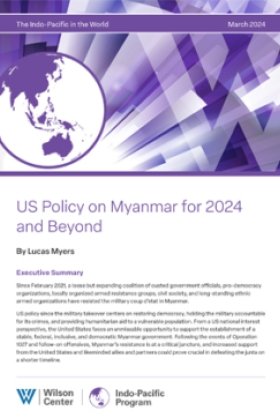Pacto Por Mexico
During the era of the pre-democratic PRI in Mexico there existed a long history of national political pacts. Those pacts typically were between the PRI dominated executive branch and the two most influential actors, labor unions and business organizations. In the 1990s, at the highpoint of the democratic transition, the PRI for the first time in its history lost its ability to ensure a two-thirds vote in the legislative branch, preventing it from accomplishing constitutional changes.

By Roderic Ai Camp, 12/12/2012
During the era of the pre-democratic PRI in Mexico there existed a long history of national political pacts. Those pacts typically were between the PRI dominated executive branch and the two most influential actors, labor unions and business organizations. In the 1990s, at the highpoint of the democratic transition, the PRI for the first time in its history lost its ability to ensure a two-thirds vote in the legislative branch, preventing it from accomplishing constitutional changes. Consequently, the PRI began negotiating with the opposition; in exchange for support on some legislative initiatives, it agreed to electoral legislation which paved the way for the 2000 electoral victory of PAN.
The Pacto de Mexico, by contrast, is an extraordinary agreement that is deep, broad, and focused on nearly all of the major political, economic, and social issues which will determine Mexico’s future. Every analyst of the failures of the Mexican government to address critical issues will find many solutions in the Pacto de Mexico. They include leading economic obstacles such as breaking up monopolies and increasing competition, expanding anti-poverty programs, and increasing the quality and access to education. It also addresses difficult political issues such as expanding and clarifying the state’s role in human rights, removing special legal privileges (which goes back to the colonial era), removing the prohibition against reelection in the legislative branch (thus strengthening that branch in the decision-making process), and amending the Constitution to reduce the five month lag between the election of a president and his inauguration. It also addresses numerous security issues in the public eye, as well as the rule of law and corruption.
One can logically make the argument that when you agree to specific goals you are restricting your ability to maneuver in the future. Yet, I believe, in looking back at the last decade, Mexico has failed repeatedly to address most of the major underlying conditions which are obstacles to achieving long-term economic growth, legal reform, and democratic consolidation. Instead, President Peña Nieto, whose staff worked assiduously for two months to negotiate this agreement, has produced a vehicle allowing all three parties to benefit politically from the completion of these proposed changes. An examination of the off-year electoral successes of the PRI in 2003 and 2009 clearly demonstrates that in the past, opposition parties, pleased with their performance, typically pursued a selfish strategy choosing to go it alone rather than adopting a more statesman-like posture of forming legislative alliances to address fundamental policy issues. The PRI today, in effect, has created a serious political bridge from which all parties can take credit, making possible the ability of government, rather than individual presidents (who are generally more popular than the administrations in Mexico), to meet citizen expectations. Will the three parties continue to support this agreement? We already have witnessed conflicts in the Senate over forthcoming administrative reforms. There is no question that it will take considerable political will to pursue this collective strategy. However, the leadership of each party recognizes the years of failure, and unlike the United States, have chosen a constructive and pragmatic solution. Achieving agreement on such a definitive and imaginative range of issues suggests, at the very least, that they are likely to sustain this through the first congressional session.
Roderic Ai Camp is the Philip McKenna Professor of the Pacific Rim at Claremont McKenna College. He serves as a member of the Mexico Institute’s Advisory Board.
This post reflects the opinion of the author and does not necessarily reflect the views of the Mexico Institute of the Woodrow Wilson International Center for Scholars.
About the Author
Roderic Ai Camp
Philip Mckenna Professor Emeritus of the Pacific Rim, Claremont Mckenna College

Mexico Institute
The Mexico Institute seeks to improve understanding, communication, and cooperation between Mexico and the United States by promoting original research, encouraging public discussion, and proposing policy options for enhancing the bilateral relationship. A binational Advisory Board, chaired by Luis Téllez and Earl Anthony Wayne, oversees the work of the Mexico Institute. Read more









